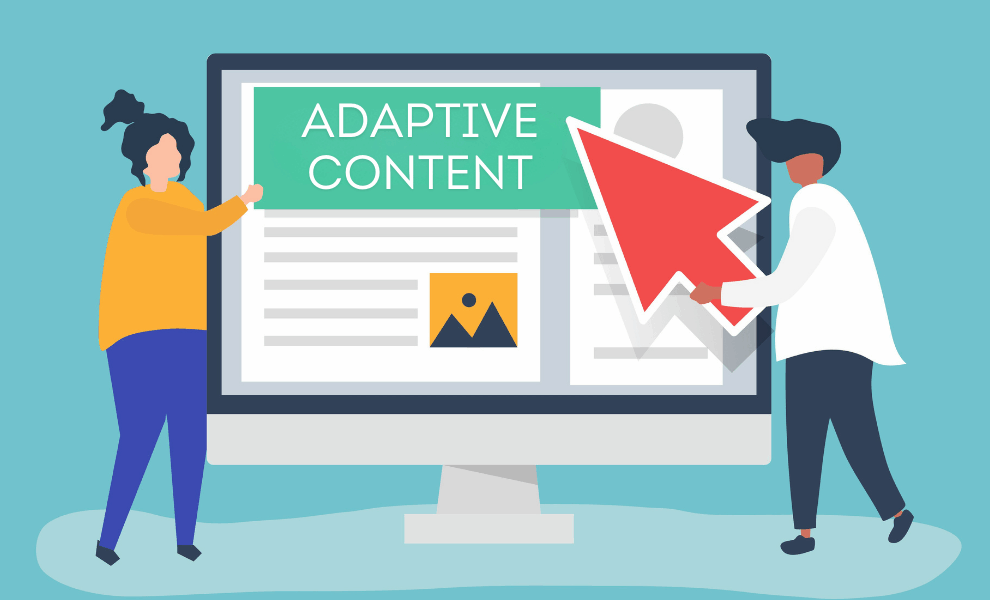In the world of content, everything changes over time. Static or the content created without any specific target audience is not going to be around for long. Adaptive content is the newest buzzword in the content marketing world.
Big and small businesses alike have found that adopting a content strategy has given them amazing results in terms of revenue and lead generation.
A recent study has found that 56% of the consumers would purchase from a brand which offers them personalized experiences.
However for these businesses to continue achieving the same results, adopting an adaptive approach becomes a necessity.
As one might guess from the name, adaptive content changes according to the needs of your audience. You create personalized, 1:1 experiences for your audience when they interact online with your brand.
If you want to be prepared for the future of content strategy, you need to know the meaning of concepts such as personalization, user experience, omnichannel, responsive design and also the relations between them.
Factors
Adaptive content changes itself, not just in the appearance but also in substance. A number of factors affect this change. Some of the primary factors are as follows:
- Device (OS used, screen resolution based on whether it is a desktop, tablet, mobile)
- Context (Location, local time)
- Person (age, gender, language, stage in life, position in the company)
These factors can be further elaborated according to the strategy that the marketer might be following. To understand the factors, let’s consider an example of adapting to device type.
For accessing the same information on the system, a person might “click” on a desktop, “touch” on a table or use the voice commands on their car’s GPS.
Responsive Design vs. Adaptive Content
Responsive design and adaptive content are two different concepts. The first is the restructuring of UI elements to suit the needs of the device it is displayed. However, adaptive refers to changing the content itself according to the audience.
Benefits of Adaptive
If there existed any way of strategic online marketing that could replace your on-the-floor salesperson, it would be adaptive content.
There are various benefits of using this content strategy. Moreover, it delivers a personalized experience. Moreover, it is cross-industry and future-proof.
Merely personalizing content boosts leads as well as sales. When your articles affect people and they act upon it, they increase the awareness of your company. This naturally results in more sales. Isn’t that everybody’s goal here?
You May Also Like To Read:
Understanding Content-Syndication 101


